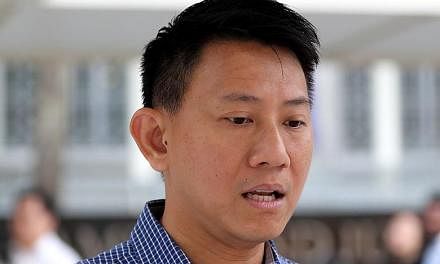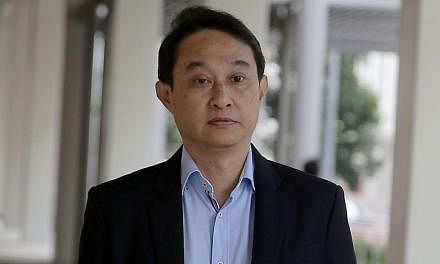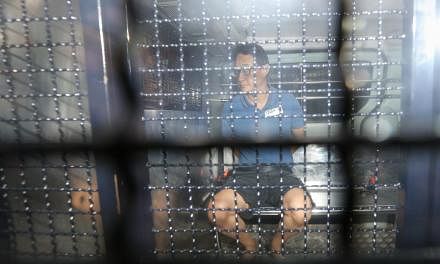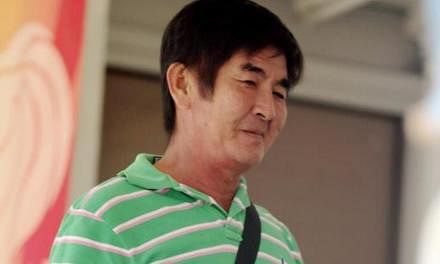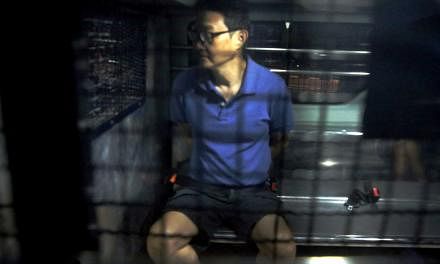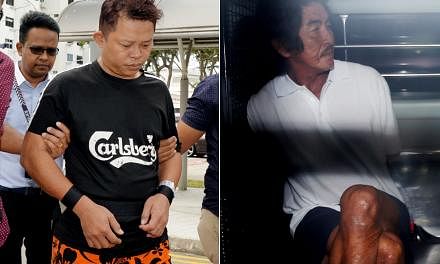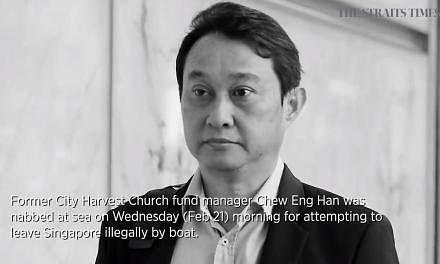SINGAPORE - The Attorney-General's Chambers (AGC) is considering whether it is possible to take further steps on the City Harvest Church case and will decide by early next week, said Law and Home Affairs Minister K. Shanmugam on Saturday (Apr 8).
All six church leaders convicted of criminal breach of trust got their sentences reduced by a three-judge panel under the appeal verdict released a day earlier.
In November 2015, the six, including church founder Kong Hee, were handed jail terms ranging from 21 months to eight years in the largest case of misuse of charitable funds in Singapore history.
All six appealed against their conviction, while the AGC appealed against the sentences for being too low.
Mr Shanmugam, who was at a racial and religious harmony event in Toa Payoh on Saturday, said: "The media is reporting that the matter is over, that this is final. Not quite. The matter is not over yet."
He told reporters that the Government agreed with the AGC's view that the original sentence was too low.
Church founder Kong Hee was originally handed an eight-year jail sentence, which was reduced to 3 1/2 years on Friday. The other five church leaders also had their jail terms reduced after the court, in a split 2-1 decision, found them guilty of a less serious charge of criminal breach of trust.
Referring to three High Court judges and one State Court judge who heard the case, Mr Shanmugam said that in terms of judges, two judges had thought that the sentences should stay or be raised. Another two judges thought the sentences should be lower, which resulted in the eventual decision to reduce the sentence.
The key reason was that the church directors were not considered to be agents, as laid out under Section 409 of the Penal Code which deals with criminal breach of trust. The judges thus found them guilty of a reduced charge of criminal breach of trust.
Said Mr Shanmugam: "From the Government's point of view, this reasoning, this legal reasoning has serious implications in other cases, including corruption cases and our zero-tolerance approach for the future.
"We will have to consider as a matter of policy what other steps to take because we cannot relax our stand on that," he said, citing as examples where directors take bribes. The minister said he had "asked AGC to advise whether we need to do anything".
But he also sounded a note of caution as he said:"I can understand that people have different views on the High Court judgment." Mr Shanmugam said that while people have a right to have their views on the judgment, they should be careful about abusing judges personally or "casting improper ulterior motives" on the judgments.
"The reasoning is there, they set it out, we agree, disagree, and from a Government point of view if we disagree then we always consider what we do. If necessary we legislate through Parliament," he said.
The six church leaders had channelled $24 million from CHC's building fund into sham bonds in music production company Xtron and glass-maker Firna. They used the money to fund the singing career of Kong's wife, Ms Ho Yeow Sun, as part of the Crossover Project, a church mission which they said was to evangelise through Ms Ho's music.
Later, another $26 million was used to cover up the sham bond investments.
Mr Shanmugam said he has "also noted the court's comments on the way the matter was handled by the prosecution".
The High Court had, in its judgment, commented on how the prosecution had run its case.
The court noted that the prosecution had not focused on any gain to third parties due to the church leaders' actions, even though this may have been suggested in the charges.
While the prosecution did attempt to touch on the gains by Kong's wife, Ms Sun, this point was not raised in its written submissions for the appeal and was also not raised before the Judge.
"In the circumstances, we approach the sentencing in this case as one without any element of wrongful gain or personal financial benefit, either direct or indirect," said the judgment.
Mr Shanmugam said that he had asked the new Attorney-General Lucien Wong and deputy Attorney-Generals to look into the matter.
Association of Criminal Lawyers of Singapore president Sunil Sudheesan said: "Given the divergence in the opinions of the judges, the prosecution may well want the Court of Appeal to clarify section 409 and the complexities of 'agents' once and for all."
This can be done through a criminal reference, which is an application open to parties involved in criminal cases in which legal questions of public interest arise. Under the Criminal Procedure Code, this must be done the matter must be referred within one month of the decision of the High Court.
However, this is not an appeal on the merits of the case, but an inquiry into the questions of law.
The outcome of the criminal reference could affect the sentences, if the Apex Court has a different view on the legal question from the High Court, said Mr Sudheesan.
Former CHC fund manager Chew Eng Han, whose original six-year jail term was reduced to three years and four months, told The Straits Times he was concerned by Mr Shanmugam's comments.
"What is going to happen at the Apex Court when I take my appeal up, which is what I'm likely to do?" said Chew, 56, who has left the church.
But Mr Chew said that he agreed with the minister on his point about amending the law through parliament if the current law is unclear or lacking.



